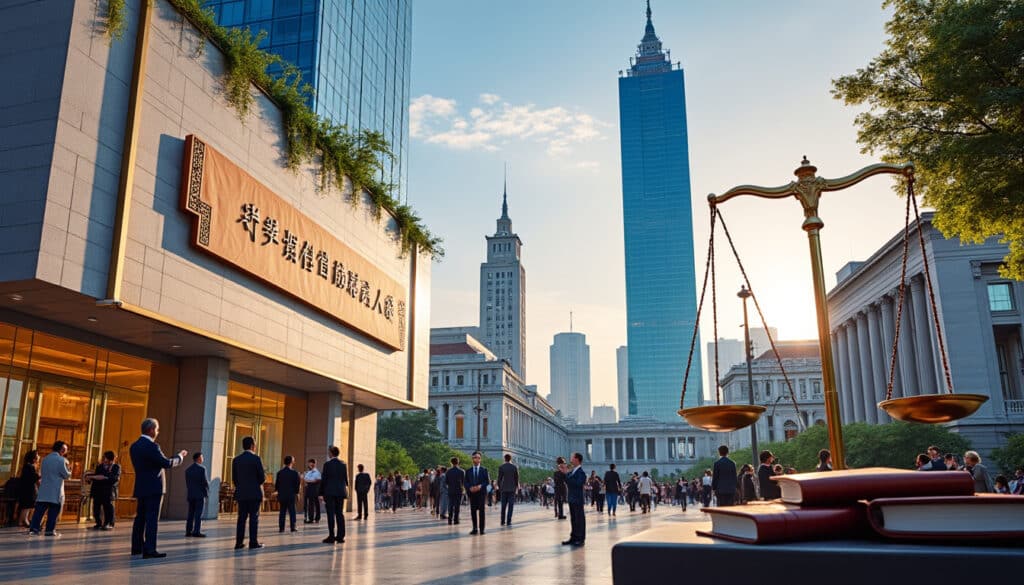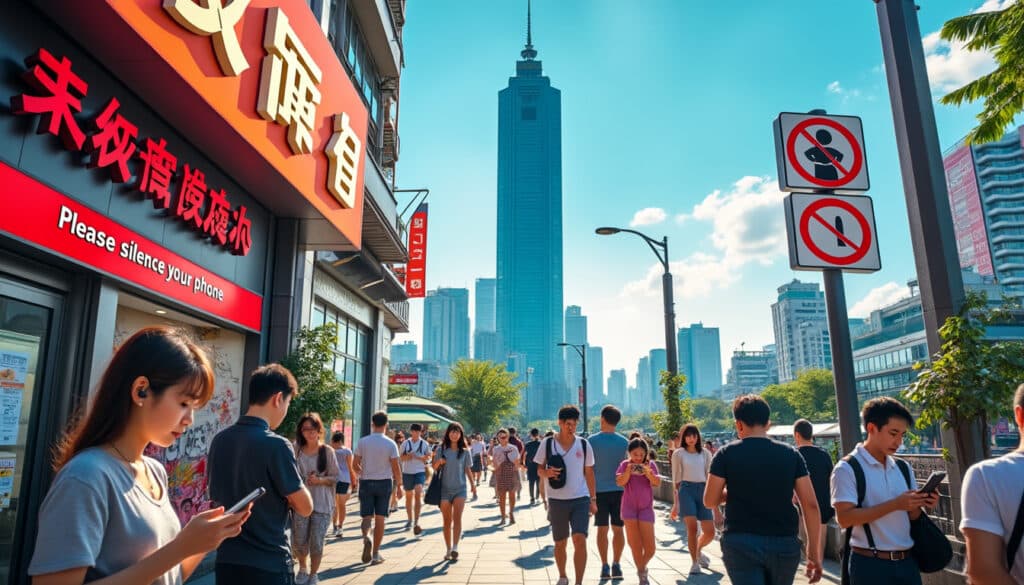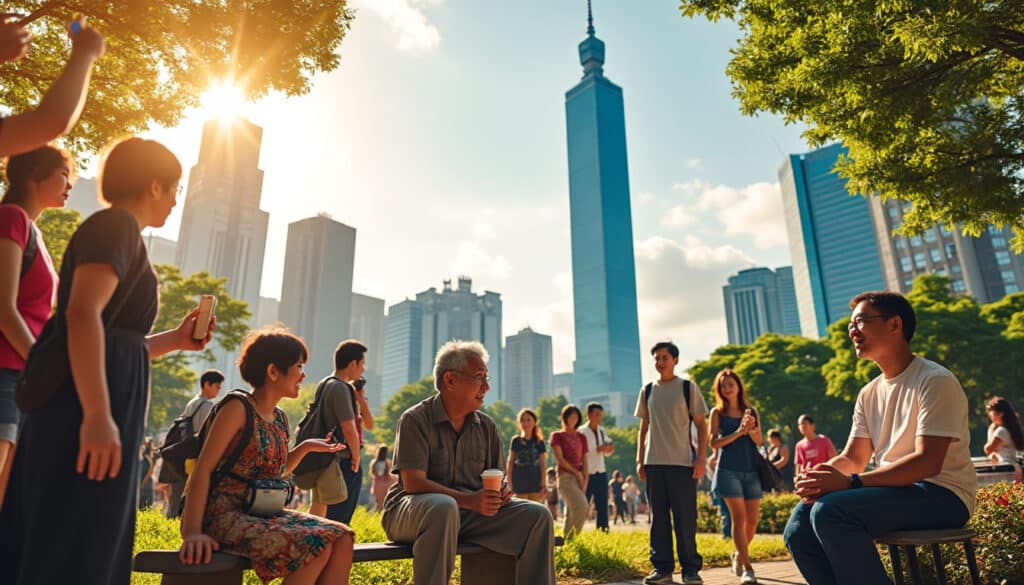Moving to Taipei, the bustling capital city of Taiwan, is an adventure filled with vibrant city life, delicious street food, and a thriving cultural scene. However, relocating comes with its own set of challenges, especially when it comes to navigating the legalities involved. Understanding the immigration process, finding the right place to live, and securing a job are crucial steps to ensure your transition is smooth and legal. With its efficient public transportation, diverse neighborhoods, and a friendly expat community, Taipei offers a warm welcome to newcomers. In this guide, we’ll delve into the essentials of moving to Taipei legally, exploring visa requirements, housing options, employment opportunities, and much more. 🌟
Visa and Immigration Requirements
To move to Taipei legally, understanding Taiwan’s visa and immigration requirements is pivotal. The Taiwan National Immigration Agency is the primary resource for all visa-related inquiries. For those planning a stay of more than 90 days, applying for the correct visa is essential. Visitors from 45 countries, including the US and many EU nations, can enter Taiwan visa-free for short stays. However, for a more permanent relocation, a resident visa is necessary.
There are various types of visas available depending on the purpose of your stay. A popular visa option is the work visa, which allows foreigners to hold employment in Taipei. Prospective employees must secure a position before applying, as employers provide necessary documentation, including a government-approved work permit. Other popular visa types include student visas for those studying at Taiwanese universities and investment visas for entrepreneurs.
- 🗂️ Work Visa: Requires a job offer and a work permit.
- 📚 Student Visa: For those enrolling in educational institutions in Taipei.
- 💼 Investor Visa: For those investing in a local business or venture.
The application process can be daunting, but numerous services offer assistance, such as the Taipei Visa Solutions and Taipei Relocation Agency. Additionally, legal advisors, like the Taipei Legal Advisors, can be invaluable in ensuring your paperwork is in order.
In summary, obtaining the right visa is the first step toward a legal move to Taipei. It’s a crucial process that paves the way for employment, residence, and participation in Taipei’s vibrant culture. For detailed information, including step-by-step guidance, visit the Taipei Horizon Legal Guide.

Housing and Neighborhoods in Taipei
Finding the perfect place to live in Taipei can initially feel overwhelming due to the sheer variety of neighborhoods each offering unique advantages. Taipei City and New Taipei City combined are home to dozens of neighborhoods, each with distinct characteristics and varying costs of living.
In general, the closer you get to the city center, the higher the cost of rent. Nonetheless, Taipei remains more affordable than many other global urban centers. Rents can range from NT5,000 ($150USD) for a shared room in an older building to NT20,000 ($650USD) for a modern studio loft.
- 🏙️ Xinyi District: Known for its skyscrapers and bustling business environment, including Taipei 101.
- 🌳 Danshui/Tamsui District: Offers a quieter, suburban lifestyle close to nature and waterfront views.
- 🏛️ Zhongzheng District: Central location with excellent transport links.
A valuable tip for house hunting is to select accommodations near an MRT line, as public transport around Taipei is exceedingly efficient. Listings can be found on platforms such as 591 and various Facebook groups dedicated to expatriates. For more insights and recent trends in living arrangements, explore the Taipei Horizon Living Guide.
| Neighborhood | Average Rent (USD) | Main Features |
|---|---|---|
| Xinyi District | ~$650+ | Business hub, luxury shopping |
| Danshui District | ~$300 | Waterfront, suburban atmosphere |
| Zhongzheng District | ~$500 | Central, cultural heritage |
Employment Opportunities and Work Permits
Employment plays a key role in the relocation process, and Taipei provides a myriad of opportunities, especially for English speakers. Teaching English remains one of the most accessible jobs for foreigners. However, the city has broadened its economic base, offering roles in technology, finance, and tourism.
Before one can start working, it is essential to secure a work permit, which is typically facilitated by the employer. The Taipei Work Permit Services are a beneficial resource in navigating this requirement, ensuring that all documentation is completed accurately.
- 👩🏫 Teaching Positions: Various roles in schools and language centers.
- 💻 Technology Jobs: Increasing demands in IT and digital sectors.
- 📊 Finance and Business Services: Opportunities abound for qualified professionals.
Despite Taipei’s openness, understanding the work culture and legal requirements is critical. Foreigners must possess the necessary qualifications, such as a degree or a TEFL certificate for teaching. Additionally, the Taiwan Employment Services offer consultation and support for newcomers.
For a comprehensive understanding of the employment landscape and tips on securing a desirable job, refer to the Taipei Horizon Employment Guide.
Transportation and Daily Life in Taipei
Getting around Taipei is remarkably uncomplicated, thanks to its extensive public transportation network. The Go! Taipei Metro app is a useful tool for navigating both buses and trains, all of which offer English announcements. Using the MRT is straightforward, with well-marked stations and helpful staff.
For those seeking flexibility, the scooter is an iconic mode of transport, synonymous with Taipei’s vibrant streets. However, caution is advised due to the heavy traffic. Alternatives include taxis, Ubers, and the popular YouBike, Taipei’s bike-sharing service.
- 🚇 MRT System: Clean, efficient, and connects the entire city.
- 🛵 Scooters: Popular but may require skillful maneuvering through traffic.
- 🚲 YouBike: Ideal for short distances and enjoying riverside parks.
An essential item for residents is the EasyCard, which simplifies payments across transport systems and at many shops. For more details on Taipei’s lifestyle and transportation tips, visit the Taipei Horizon Lifestyle Guide.
Integrating into Taipei’s Culture and Society
Living in Taipei offers a rewarding cultural experience, marked by a blend of traditional and modern influences. Expats often find the challenge of the language barrier, as Mandarin is the official language. However, younger generations and those in tourist areas frequently speak English.
Consider taking Mandarin classes to enhance your experience in Taipei. Many universities offer courses tailored for foreigners. Furthermore, engaging with the community through local events, such as night markets, festivals, and cultural tours, provides deeper insights into Taiwanese life.
- 🈵 Language Schools: Institutions and centers provide Mandarin lessons.
- 🛍️ Night Markets: Dive into local flavors and traditions.
- 🎎 Festivals and Events: Partake in cultural celebrations and gatherings.
The key to integration is staying open and willing to learn. Many expatriates find building relationships with locals enriches their Taipei experience considerably. For language resources and cultural insights, check out this Taipei Horizon Cultural Guide.
Frequently Asked Questions
- What documents are necessary to apply for a Taipei work visa?
Applicants need a job offer, work permit, valid passport, and any additional documents requested by the Taiwanese consulate. - Is it easy to find accommodation in Taipei?
Yes, with numerous online platforms and agencies, finding a suitable place is relatively straightforward. - What should I prioritize before moving to Taipei?
Securing a visa, understanding housing options, and exploring job opportunities are essential steps.

Legal Information and Rules in Taipei
When navigating the dynamic cityscape of Taipei, understanding the legal system and its rules is crucial for both residents and visitors. Taipei’s legal structure reflects a blend of historical influences and modern advancements, designed to maintain order and justice in…

Calling and communication rules in Taipei
Taipei, a bustling city blending rich history with modern innovation, stands as a beacon of culture and commerce in Asia. Navigating this dynamic landscape requires more than just knowing landmarks; understanding the intricate calling and communication rules can make a…

Criminal status and entry to Taipei
Understanding laws and regulations can be a daunting task, especially when they influence one’s ability to travel internationally. For those considering a trip to Taipei, the vibrant capital of Taiwan, it’s crucial to be aware of how a criminal record…

Drinking and age restrictions in Taipei
The conversation around drinking and age restrictions in Taipei is a complex and evolving topic, shaped by both cultural nuances and public health concerns. While the legal drinking age in Taiwan is currently set at 18, there are growing calls…

In recent years, Taipei has become a bustling hub of activity and excitement, particularly during the holiday season. As the legislation regarding public holidays undergoes significant changes, both residents and travelers should be well-informed about what this means for experiencing…

Smoking, drugs, and red light laws in Taipei
In the vibrant city of Taipei, where modernity meets traditional charm, the legal landscape surrounding smoking, drugs, and the red-light district is evolving. The bustling streets offer a unique blend of cultural experiences, but understanding the local legal frame can…

Social and discrimination issues in Taipei
As Taiwan continues to progress in various social avenues, the capital, Taipei, finds itself at the crossroads of modernity and tradition. Social justice and discrimination issues are topics of growing importance in the city, as cultural and demographic shifts mold…

